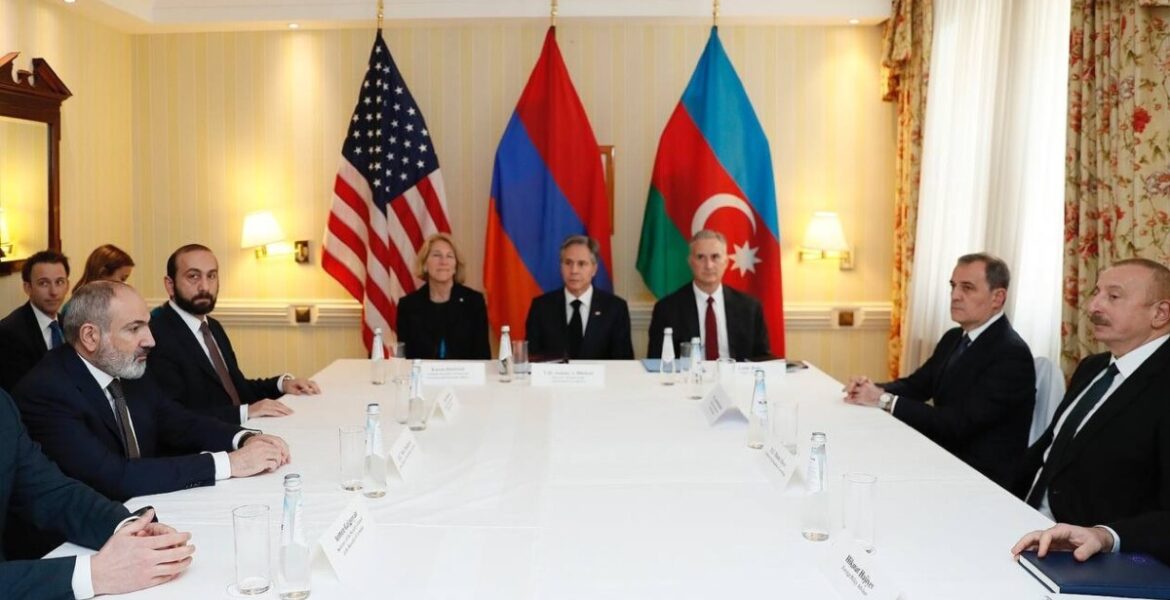There's information that in the coming days, representatives of Azerbaijan and Nagorno-Karabakh will meet in a third country in order to negotiate, with the USA serving as an intermediary state. The Karabakh-Azerbaijani negotiations will probably take place in Sofia, the capital of Bulgaria.
There's a need for official confirmation of the information, but this may only happen if the negotiation process implies confidentiality. This is at least the second attempt to organise a Baku-Stepanakert meeting in Bulgaria. The previous one was months ago, in May-June, but it failed due to Azerbaijan's maximalist position.
In particular, the international mediators conveyed Azerbaijan's proposals to Stepanakert. It was a program to integrate the Armenians of Nagorno-Karabakh into Azerbaijan. The Karabakh side perceived it not as an invitation to negotiations but as a presentation of a request by Azerbaijan. Due to the maximalism of Azerbaijan, that meeting didn't take place.
Azerbaijan has insisted that it pay the rent for the hotel space and hospitality for the Karabakh-Azerbaijani negotiations in Sofia. Formerly, Karabakh rejected Azerbaijan's offer to go to Baku and negotiate. Now, Azerbaijan wants to feel like a host in that negotiation.
Baku objected to American mediators in the meeting room with Stepanakert representatives in Sofia. Baku suggested that they wait in the next room.
Why does Azerbaijan object to negotiations with Nagorno Karabakh being held in the presence of international observers? During the talks, Azerbaijan intends to present a plan for the integration of Nagorno Karabakh Armenians into Azerbaijan, not to discuss or accept any of Stepanakert's proposals, and to threaten that if Stepanakert doesn't get its demands, Baku will start a war.
In other words, Azerbaijan imagines the meeting as an ultimatum presentation ceremony, not a negotiation. And he doesn't want the USA to see it.
On March 1, 2023, Azerbaijan met with representatives of Nagorno-Karabakh Armenians in Ivanyan/Khojaly. The command of the Russian peacekeepers was present. Stepanakert offered to discuss technical issues at that meeting. However, the Azerbaijani deputy sent from Baku presented a plan for integrating Karabakh Armenians, intentionally disrupting the meeting.
The meeting failed. Five to six days after that meeting, Azerbaijan killed three Armenian police officers in Nagorno Karabakh. President Arayik Harutyunyan revealed after that meeting that Azerbaijan threatened the representatives of Nagorno-Karabakh that if the Azerbaijani integration plan isn't accepted, there would be harsh military actions.
Arresting a 68-year-old citizen of Karabakh in the Lachin Corridor and transferring him to Baku is Azerbaijan's attempt to derail the upcoming negotiations with Stepanakert. It is the use of force and threat by Azerbaijan against the Armenians of Karabakh. It may seem that the meeting with the Armenians of Karabakh is beneficial for Azerbaijan because it's a chance to present a request.
However, when Nagorno Karabakh participates in the negotiations with Azerbaijan, it deprives Baku of the opportunity to create false grounds for using military force. Azerbaijan prefers that Karabakh doesn't participate in the meetings, which it will interpret as destructiveness, and start a military operation against Karabakh.
Baku likely fails this upcoming match as well. For example, in addition to arresting Vagif Khachatryan, Azerbaijan can organise new military provocations and prevent the Armenian side from attending the meeting. But if the meeting occurs, the official Stepanakert will present its program and agenda.
International mediators should be more deeply involved in the negotiations. The US should move from the role of a mere meeting organiser to the position of forcing solutions. The goal of Azerbaijan is to deport the Karabakh Armenians by starving them to death, creating inhuman conditions for living.
As long as there is no intense pressure on Azerbaijan to give up this maximalism, peace will not be established. On the contrary, the high risk of a new bloody conflict will remain.
By the way, today, US Secretary of State Anthony Blinken announced that he spoke with the President of Azerbaijan, Aliyev, yesterday.
In the conversation, he wrote: "I spoke to Azerbaijani President Aliyev yesterday to express our deep concern for the deteriorating humanitarian conditions in Nagorno-Karabakh. The United States urges all sides to continue dialogue to reach a durable peace agreement."
Robert Ananyan is a journalist for Factor TV.
READ MORE: World Leaders Must Stop Azerbaijan's Genocide In Nagorno-Katrabakh! Act Now! - Ambassador Mkrtchyan.


